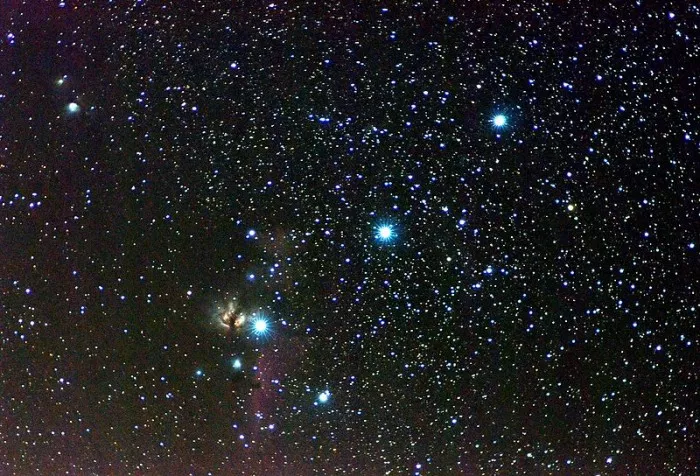According to the verge report, according to the results of a new citizen science survey led by the rural charity Cpre, now is the best time to watch stars in the UK since 2011 . Light pollution in the UK has fallen to its lowest level since Cpre began its annual study more than a decade ago.

Light pollution peaked in 2020 (before the full outbreak of the covid-19 pandemic) and then declined last year due to workplace closures during the pandemic. Since then, Cpre said light pollution has continued to decline as more people continue to work from home and soaring energy prices in Europe have prompted households to reduce lighting costs.
Every year, Cpre conducts "star count" with the help of citizen scientists. This year, more than 2500 participants counted the number of stars they saw in the night sky in their area between February 26 and March 6. They were asked to look for stars in Orion because the three bright stars that make up Orion's belt are recognizable. According to the definition of Cpre, "serious" light pollution refers to 10 or fewer stars that can be seen with the naked eye.
As early as 2020, 61% of participants reported serious light pollution. By 2021, reports of severe light pollution had fallen by 10%. This figure continued to decline this year, with 49% of participants experiencing serious light pollution.
Bright artificial light can cause great problems for animals. It can destroy the mood of frogs and fireflies mating at night. It may disrupt the wolf's communication; When the sky gets darker, they howl more. Some birds rely on the moon and stars to find direction when flying.
Research also shows that bright night lights can have a negative impact on humans, inhibit melatonin and interfere with our sleep rhythm. From another perspective, stargazing can also be fun and relaxing.
For many of the above reasons, Cpre advocates changes to reduce light pollution. Cpre said offices could turn off lights at night, and city councils could more strategically light streets only where needed. As incentives, these measures can also reduce energy costs and other types of pollution.
"The good news is that the results of these 'star counts' show that small adjustments can bring big changes," Cpre dark sky activist Emma marrington said on Tuesday( https://www.cpre.org.uk/news/night-skies-outlook-is-bright-our-star-count-results-suggest/ ) Said in.
Cpre also has a useful [map] on its website( https://www.cpre.org.uk/news/night-skies-outlook-is-bright-our-star-count-results-suggest/ ) It shows where light pollution is most serious in the UK and where stargazers can get the best view of the night sky.